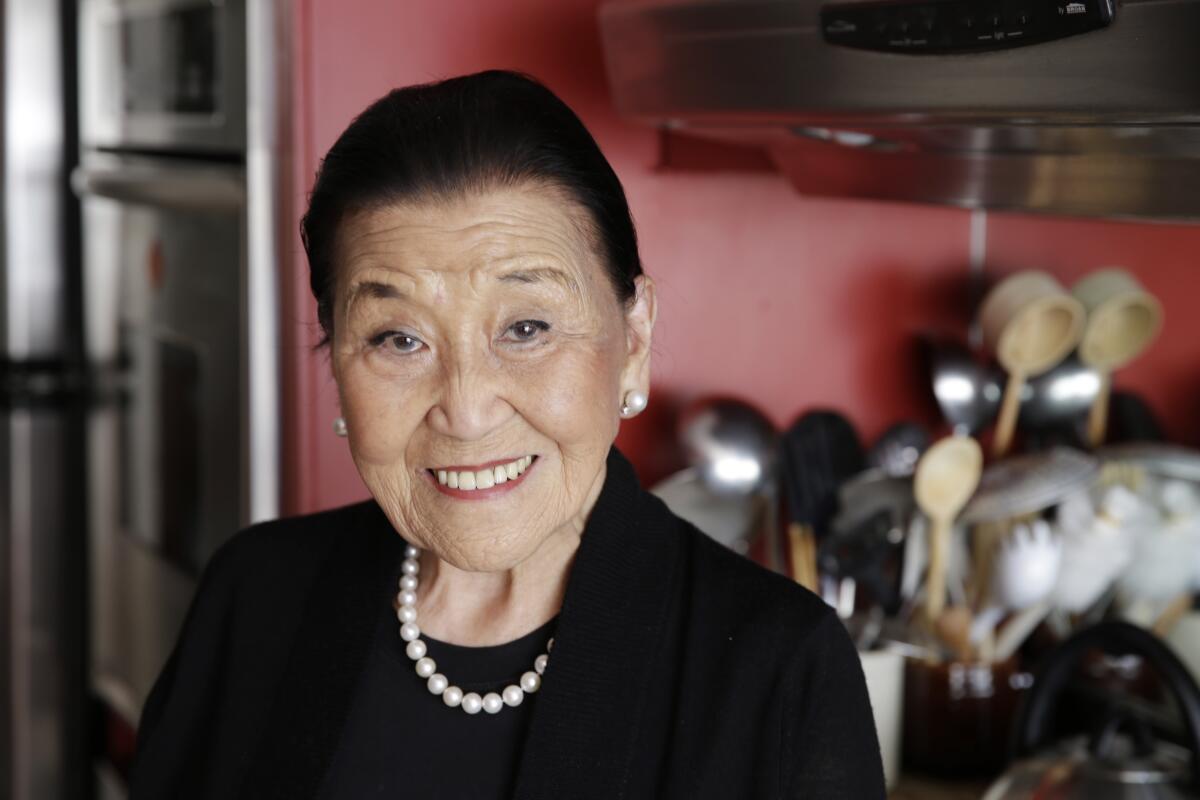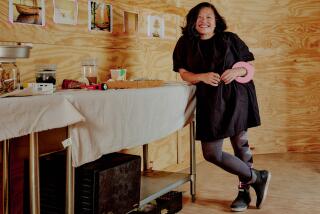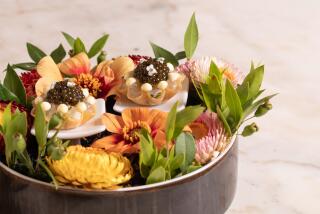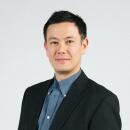Cecilia Chiang, pioneer of Chinese cuisine, dies at 100

She’s been called nearly every superlative: a trailblazer, an icon, the grand dame of Chinese cuisine, the mother of modern Chinese cooking, the Julia Child of Chinese food.
Cecilia Chiang, the person largely credited for introducing regional Chinese dishes to the United States and transforming the way Americans think about Chinese cooking, was all of those things but still, somehow, underappreciated.
Chiang, who opened the high-end restaurant the Mandarin in 1961 and operated it for the next three decades, died Oct. 28 of natural causes at her San Francisco home, according to the Associated Press. She was 100.
The Mandarin opened on Polk Street before moving to larger digs in Ghirardelli Square in 1968 to accommodate its growing clientele. At the Mandarin, visitors could enjoy dishes fairly commonplace to diners today but that many Americans had never tried before — pot stickers, Peking duck and hot and sour soup. Back then, the majority of Americans’ experience with Chinese food came in the form of dishes that catered heavily to the American palate.
“Cecilia single-handedly brought traditional regional Chinese cuisine to the American table with imagination and diversity,” said Martin Yan, chef and longtime host of the PBS cooking program “Yan Can Cook” via email. “She elevated the American public’s understanding of Chinese food above and beyond chop suey, chow mein and egg rolls.”
The primary language of Chinese immigrants in the U.S. when Chiang arrived was Cantonese — not Mandarin, which she spoke — and the cuisine of immigrants from Hong Kong and Southern China dominated Chinatowns nationwide. Chiang is credited with being the first to popularize regional Chinese favorites that she grew up loving.
In Food & Wine, Museum of Food and Drink director Peter Kim called Chiang “paradigm-shifting.” “She introduced Americans to an entirely new set of flavors from Northern China, Sichuan, and Hunan,” he said. Her influence continues to inspire contemporary chefs.
“Cecilia Chiang was truly an inspiration to me as a young cook,” said chef Mei Lin of Nightshade via text message. “There might not be a person who did more to progress the discourse on Chinese food in America away from cheap takeout and onto the menus at some of the finest restaurants in the world.”
Born near Shanghai to a wealthy family on Sept. 18, 1920, Chiang, the seventh of 12 children, grew up in luxury in the imperial city of Beijing and came of age during the long conflict between Chiang Kai-shek’s Nationalists and China’s fledgling Communist Party.
Following the Japanese invasion of China in 1939, the family’s luck took a downturn. In her memoir “The Seventh Daughter: My Culinary Journey from Beijing to San Francisco,” Chiang wrote that her family took the last plane out of Shanghai in 1949 before the Communist takeover and settled in Tokyo, investing in a restaurant called the Forbidden City.
But it was a 1960 trip to visit her sister Sophie in San Francisco that set Chiang on her inadvertent path to culinary immortality. The story of how the Mandarin came to be, now nearly apocryphal, goes like this: Chiang fronted a couple of acquaintances $10,000 on a restaurant lease. They backed out on the deal and the landlord wouldn’t return the money. Rather than rue the lost funds, Chiang made a decision: She would open a restaurant herself.
Chiang was not a chef, nor had she ever opened a restaurant on her own. But she had drive, an excellent palate and a determination to make the business work. Amazed by the lack of variety in Chinatown, Chiang sought to create a space in the image of the food she grew up with: elegant, refined, and technique-driven. This was directly counter to the quick-and-easy stereotype that many Americans held about the cuisine.
The restaurant wasn’t immediately successful, but about a year after opening, the Mandarin received a mention from the San Francisco Chronicle’s Herb Cain. The effect of the powerful columnist’s write-up was instant. Soon, there was a line out the door.
The success caused Chiang to relocate the 65-seat restaurant to a larger space in Ghirardelli Square in 1968, but racist tropes nearly prevented the move. The leasing company originally didn’t want a Chinese restaurant in its commercial complex. After an inspection to make sure the facility was sufficiently clean, Chiang was offered a lease.
The Mandarin became an indispensable Bay Area institution, and a must-visit for celebrities from both in and out of the food community: James Beard, Alice Waters, Jackie Kennedy and John Lennon all flocked to enjoy Chiang’s food. After three decades, Chiang sold the restaurant in 1991. It closed permanently in 2006.
Chiang was appreciative of opportunities moving to the U.S. afforded her. “Here in America we are so lucky,” Chiang said in a 2008 interview. “When I hear people complain in this country, I think to myself, ‘Oh, God should punish you.’”
She remained active after her official retirement, consulting and supporting her son, Philip, as he co-founded the successful P.F. Chang’s restaurant chain.
Chiang went out on the town and attended parties and restaurant openings well into her late 90s, according to Chiang’s granddaughter Siena. She remained, as ever, passionate and taking advantage of every moment she had.
More to Read
Eat your way across L.A.
Get our weekly Tasting Notes newsletter for reviews, news and more.
You may occasionally receive promotional content from the Los Angeles Times.











